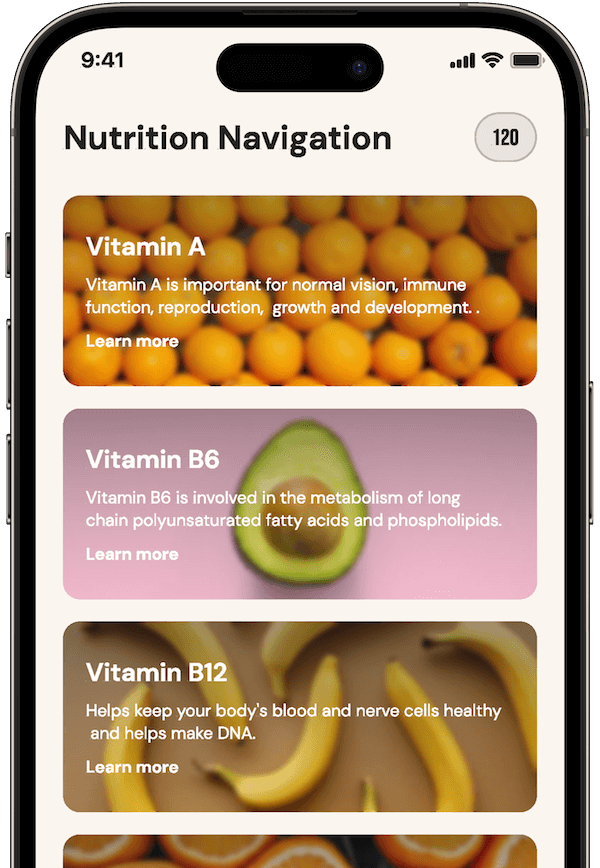When I first heard the word “adenomyosis,” my initial thought was, “Great, another thing to add to my ever-growing list of ‘female mysteries’.” Not quite the club I wanted to join. As someone who’s been knee-deep in kale smoothies and wellness routines for years, and armed with my nutrition coach certification from the Institute of Integrative Nutrition in New York, I realized I had to get to the bottom of this condition—stat.
After managing my symptoms with a mix of nutrition, lifestyle tweaks, and a dash of stubborn determination, I’ve learned a thing or two about how adenomyosis can throw a wrench into your fertility and pregnancy plans. So, whether you’re on a mission to conceive or just curious about what this adenomyosis thing might mean for your pregnancy, I’ve got the scoop for you.
Adenomyosis can significantly impact fertility and pregnancy, leading to challenges like infertility, miscarriage, and complications during pregnancy. Understanding the four stages of adenomyosis and how it affects reproductive health is crucial for those experiencing this condition. Management through proper diagnosis, treatment, and lifestyle changes, including diet and nutrition, can improve outcomes for those trying to conceive or maintain a healthy pregnancy.
What is Adenomyosis and How Does It Develop?

Adenomyosis is a condition where the inner lining of the uterus (endometrium) invades the muscle wall of the uterus (myometrium), leading to a range of symptoms including heavy periods, severe cramping, and chronic pelvic pain.
While the exact cause of adenomyosis remains unclear, it’s believed to be associated with hormonal imbalances, inflammation, or prior uterine surgeries. This condition can be challenging to diagnose as its symptoms often mimic those of other reproductive health issues, such as endometriosis.
How Does Adenomyosis Affect Fertility?
Adenomyosis can create significant challenges for individuals trying to conceive due to changes in the uterine environment and hormonal imbalances. The condition often impacts fertility in the following ways:
- Thickened Uterine Walls: In adenomyosis, the uterine walls become thickened and inflamed, which can obstruct the passage of sperm, making it harder for sperm to reach the egg and initiate fertilization.
- Reduced Implantation Rates: The inflamed and irregular uterine tissue can disrupt the conditions needed for an embryo to implant successfully. This leads to lower implantation rates, which decreases the chances of achieving pregnancy.
- Hormonal Imbalance: Adenomyosis can interfere with the body’s natural hormone regulation, leading to menstrual irregularities and reduced fertility. Hormonal imbalances further impact the uterine environment, creating additional barriers to conception.
- Increased Risk of Miscarriage: Even if implantation is successful, the altered uterine structure and ongoing inflammation can increase the risk of miscarriage. This is because the abnormal tissue growth may interfere with the embryo’s ability to develop and attach securely to the uterine wall.
Can You Get Pregnant If You Have Adenomyosis?

Yes, it is possible to get pregnant with adenomyosis, but it can present challenges. The condition’s effects on the uterine environment, such as thickened walls and hormonal imbalances, can reduce fertility, making conception more difficult. However, many women with adenomyosis have successfully conceived, often with the help of tailored treatment plans and close medical guidance.
If you’re trying to get pregnant, it’s essential to work closely with a healthcare provider who specializes in fertility. They can recommend treatments to improve your chances, such as hormonal therapies to reduce inflammation, surgical procedures to address uterine abnormalities, or assisted reproductive technologies like IVF. While the journey might be more complex, pregnancy with adenomyosis is achievable with the right support.
How Does Adenomyosis Impact Pregnancy?

Adenomyosis can present significant challenges during pregnancy, increasing the risks of complications that may affect both maternal and fetal health. The structural changes and inflammation in the uterus can lead to issues such as preterm labor, fetal growth restriction, and a higher likelihood of cesarean delivery. Close monitoring and specialized prenatal care are crucial for managing these risks and supporting a healthier pregnancy outcome.
Key risks include:
- Preterm Labor: The thickened and inflamed uterine walls can trigger early contractions, elevating the risk of premature birth and potential complications associated with preterm delivery.
- Fetal Growth Restriction: Abnormal uterine conditions caused by adenomyosis can impair blood flow and nutrient supply, potentially limiting the baby’s growth and development.
- Cesarean Delivery: Due to structural changes in the uterus, natural labor can be more challenging, often making a C-section the safer delivery method.
Does Adenomyosis Affect IVF Success Rates?
Adenomyosis can impact IVF success rates by creating a less receptive environment for embryo implantation and increasing the likelihood of miscarriage. The thickened and inflamed uterine walls associated with adenomyosis make it harder for the embryo to implant and grow, often reducing the overall success rate of IVF cycles.
However, with careful management, such as pre-IVF treatments to reduce inflammation and personalized protocols developed in collaboration with a fertility specialist, the chances of a successful pregnancy can be improved. While challenges may remain, many individuals with adenomyosis have achieved successful pregnancies through IVF with tailored approaches and consistent medical support.
How to Manage Adenomyosis While Trying to Conceive or During Pregnancy

Adenomyosis treatment to improve fertility often combines hormonal therapies, like GnRH agonists, to reduce inflammation and regulate menstrual cycles, with surgical options, such as uterine-sparing surgery, to remove affected tissue and alleviate symptoms.
Lifestyle modifications, including an anti-inflammatory diet and stress management, can further enhance reproductive health by reducing overall inflammation in the body. The Unprocessed App supports tracking these changes, empowering users to improve fertility and well-being. Join the waitlist for early access to this supportive health tool.
In addition to medical treatments and lifestyle changes, here are key strategies for managing adenomyosis during fertility and pregnancy:
- Collaborate with Specialists: Partner with a fertility specialist and an obstetrician experienced with adenomyosis to create a personalized care plan and monitor your condition closely.
- Focus on Reducing Inflammation: Follow an anti-inflammatory diet that includes nutrient-dense foods like leafy greens, fatty fish, nuts, and seeds.
- Monitor Hormonal Health: Consider treatments aimed at balancing hormones, such as hormonal therapy, to support a healthier uterine environment.
- Prioritize Stress Management: Use mindfulness practices, yoga, or therapy to manage stress, which can help regulate stress hormones and reduce inflammation.
Combining these strategies with medical support can optimize your chances of achieving a successful pregnancy while effectively managing adenomyosis. Empower yourself with knowledge and the right tools to take control of your journey.
Frequently Asked Questions
Is it safe to get pregnant with adenomyosis?
Yes, but it requires careful monitoring and symptom management.
Can adenomyosis go away after pregnancy?
Symptoms may improve, but the condition usually persists.
Does adenomyosis increase the risk of C-section?
Yes, due to potential complications during delivery.
Can adenomyosis cause early labor?
Yes, adenomyosis is linked to a higher risk of preterm labor.
Is there a connection between adenomyosis and endometriosis?
Yes, many women with adenomyosis also have endometriosis, which can complicate fertility and pregnancy further.
Closing Thoughts

Navigating fertility and pregnancy with adenomyosis can be a challenging journey, but with the right support, information, and treatment options, you can make empowered choices for your health. Whether you’re considering lifestyle changes, exploring treatment, or simply seeking to understand your body better, tools like the Unprocessed App can be an invaluable resource.
From tracking dietary adjustments to managing stress, the Unprocessed App offers a supportive platform to help you take control of your health journey. Join the waitlist today to gain early access and start making impactful lifestyle improvements toward a healthier pregnancy and enhanced fertility.



